Are you a dog lover who dreams of a furry companion but dreads the constant battle with shedding hair? For many, excessive shedding can be a major deterrent to owning a dog, especially in smaller living spaces. Fortunately, there’s a wonderful world of small dog breeds that shed minimally, or not at all, making them perfect for allergy sufferers and anyone who prefers a cleaner home. At Dog Care Story, we understand your concerns and are here to guide you through the exciting options available. This comprehensive guide will introduce you to some of the most beloved small dog breeds that don’t shed, helping you find the ideal furry friend to welcome into your life.
We’ll explore the unique characteristics of each breed, from their temperament and exercise needs to their grooming requirements, ensuring you have all the information necessary to make an informed decision. Let’s dive into the charming world of low-shedding small canines!
Understanding the “Non-Shedding” Dog
It’s important to clarify what “non-shedding” truly means in the context of dog breeds. No dog is completely 100% non-shedding. What we refer to as “non-shedding” breeds are typically those that shed very little, or whose shed hair gets trapped in their coat rather than falling out onto your furniture and floors. These breeds often have hair that grows continuously, similar to human hair, rather than fur that goes through distinct shedding cycles. This characteristic makes them a fantastic choice for individuals with allergies or those who simply want to minimize pet hair around their home.
For owners seeking out these specific traits, exploring small dogs that don’t shed and are hypoallergenic can be a great starting point. These breeds often share a genetic makeup that produces less dander and hair, contributing to a cleaner living environment.
Featured Small Dog Breeds That Don’t Shed
Let’s explore some of the most popular and charming small dog breeds known for their minimal shedding. Each breed offers a unique personality and set of needs, so careful consideration is key.
Affenpinscher
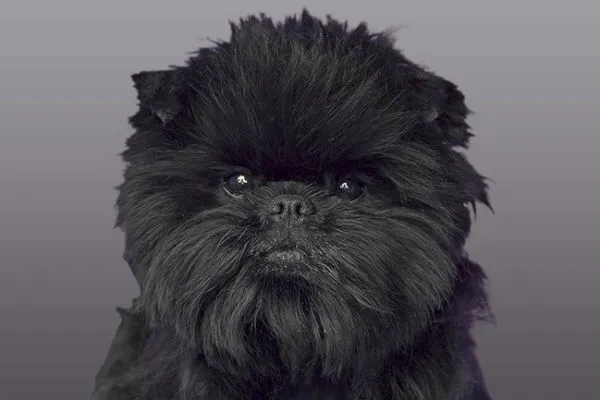 Affenpinscher dog
Affenpinscher dog
The name “Affenpinscher” translates to “monkey-like terrier,” a fitting description for this intelligent and alert breed. Despite their compact size, Affenpinschers are fearless and make excellent watchdogs, often alerting their owners to approaching guests. Their wiry coat sheds very little and also has a minimal doggy odor. A twice-weekly brushing with a slicker brush and comb is usually sufficient to keep their shaggy yet neat appearance. These dogs are known for their sense of humor, adding plenty of joy to any household. If you’re considering this spirited companion, researching cute small dog breeds that don’t shed might lead you to the Affenpinscher.
Basenji
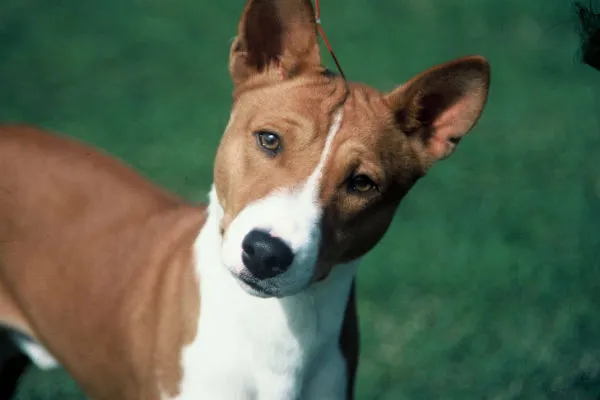 Basenji dog
Basenji dog
For those who admire hounds but are concerned about typical hound shedding and odor, the Basenji presents an appealing alternative. This breed sheds minimally, and their short, fine coat requires little grooming beyond occasional brushing. Basenjis are also famously quiet, making them well-suited for apartment living, provided they receive adequate daily exercise and playtime. Their unique vocalizations, often described as a “yodel,” are a distinctive characteristic of this breed.
Bichon Frise
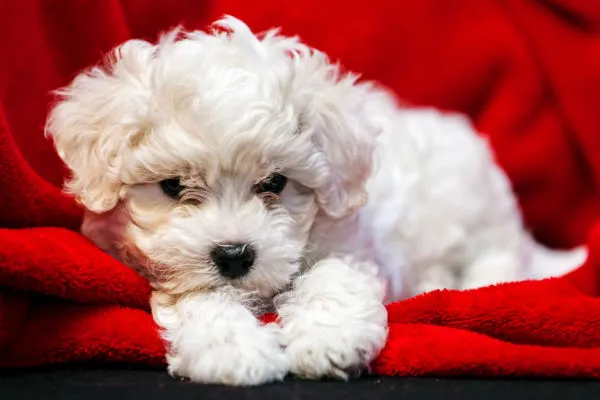 Bichon Frise dog
Bichon Frise dog
The Bichon Frise is a true gem among non-shedding small dog breeds. These exceptionally playful and affectionate dogs are often considered ideal for people with allergies. However, their low-shedding coat doesn’t mean low maintenance. The Bichon Frise’s hair grows continuously, necessitating frequent professional grooming, regular brushing, and occasional baths to maintain their signature “powder-puff” appearance. Their cheerful disposition and charming looks make the grooming effort well worthwhile for many owners.
Bolognese
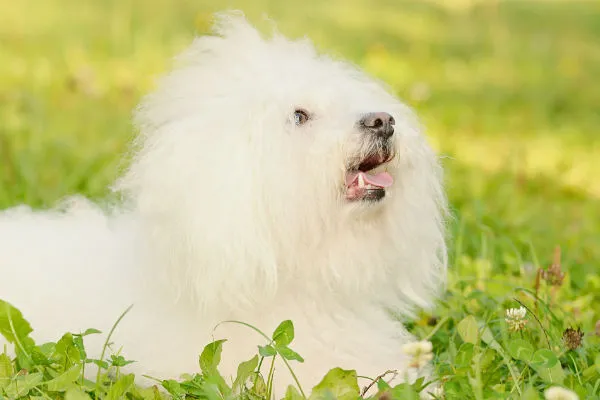 Bolognese dog
Bolognese dog
Similar to the Bichon Frise, the Bolognese boasts a distinctive fluffy coat composed of hair rather than fur. This lovable lap dog does not shed, though dead hairs must be brushed out regularly. Their coat requires daily grooming to maintain their handsome appearance. The Bolognese are known for their gentle and affectionate nature, forming strong bonds with their families.
Brussels Griffon
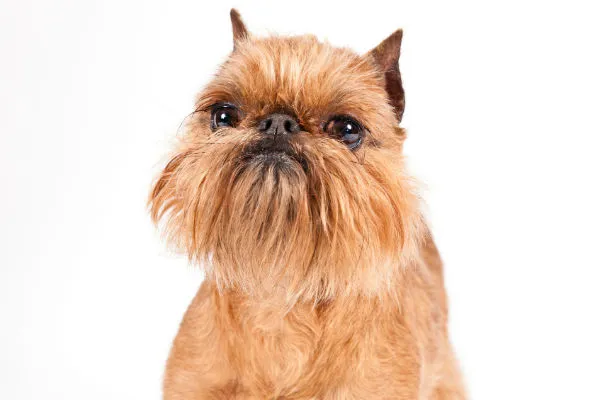 Brussels Griffon dog
Brussels Griffon dog
Don’t let their small size fool you; Brussels Griffons are sturdy dogs that don’t demand excessive pampering. Available in both smooth-coated and rough-coated varieties, these dogs thrive with regular grooming and are minimal shedders. Their exercise needs are easily met with a daily walk and indoor play sessions. Brussels Griffons are loyal companions that do best with families who are home frequently, as they enjoy close companionship.
Chinese Crested
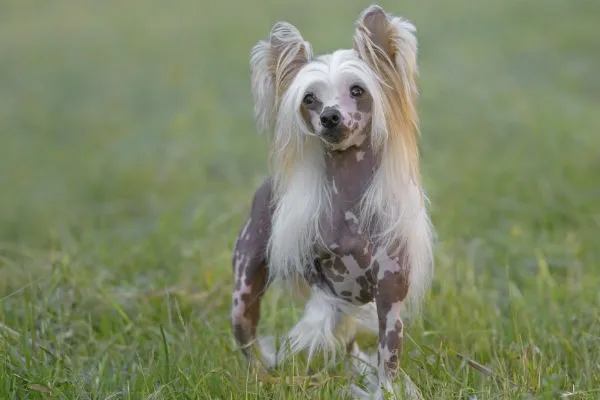 Chinese Crested dog
Chinese Crested dog
One of the most direct ways to avoid shedding is to opt for a hairless dog breed. The Chinese Crested comes in two coat types: hairless and powderpuff. The hairless variety has hair on its head, tail, and feet, while the powderpuff is covered in fine hair that sheds very minimally. Hairless Chinese Crested dogs require extra skin care, including protection from the sun and cold, as they are more prone to skin irritations. Their unique appearance and affectionate nature make them sought-after companions.
Coton de Tulear
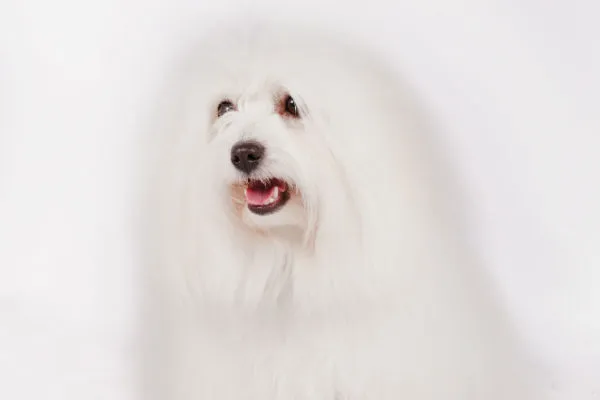 Coton de Tulear dog
Coton de Tulear dog
With its distinctive long, fluffy coat, the Coton de Tulear is considered a hypoallergenic breed, making it an excellent choice for allergy sufferers and those seeking a small dog that doesn’t shed. These dogs require daily grooming to maintain their beautiful coats, but their lighthearted and gentle demeanor makes the effort a labor of love. Their playful spirit and affectionate nature are sure to win over any owner.
Havanese
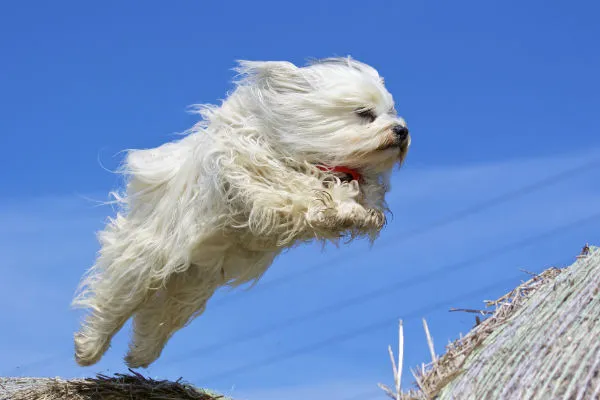 Havanese dog
Havanese dog
Native to Cuba, the Havanese offers owners a delightful blend of spunky charm and a non-shedding coat. This means less time spent cleaning up after your dog and more time enjoying playful romps together. Their coat requires weekly brushing and regular baths to keep them clean and healthy. The Havanese are known for their cheerful disposition and adaptability, making them wonderful family pets.
Maltese
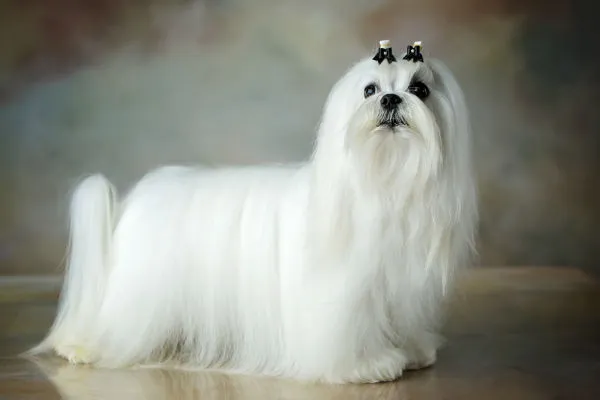 Maltese dog
Maltese dog
The Maltese has charmed humans for millennia with its elegant long, white coat that sheds very little, making it an ideal lap dog. These ancient dogs from Malta have maintained their breed standard remarkably well. Regular brushing is essential to prevent mats from forming in their long, silky hair, and occasional baths help keep them pristine. Their affectionate and gentle nature makes them devoted companions.
Lhasa Apso
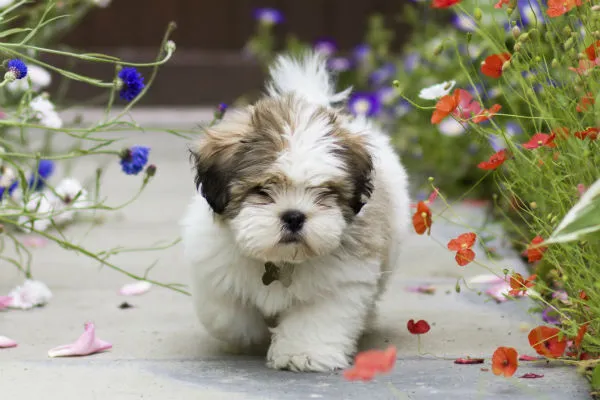 Lhasa Apso dog
Lhasa Apso dog
This small dog breed originating from Tibet is an excellent companion, known for being calm yet playful. The Lhasa Apso enjoys brisk walks and relaxing in their owner’s lap. They don’t shed, but their coats do require consistent maintenance. Many owners opt to keep their Lhasa Apsos clipped in a “puppy cut” to simplify daily grooming and brushing of their long hair. Their alert nature also makes them good watchdogs.
Miniature Schnauzer
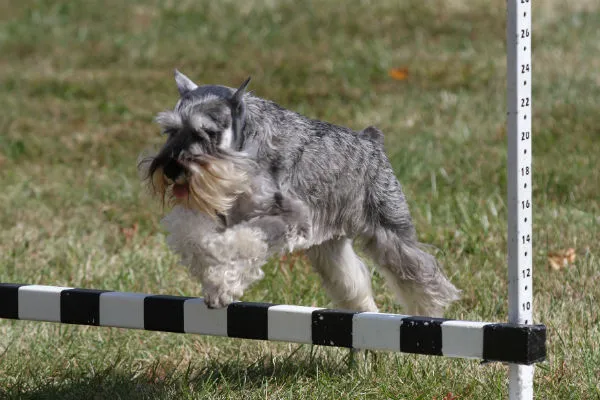 Miniature Schnauzer dog
Miniature Schnauzer dog
The Miniature Schnauzer is an intelligent, trainable, and cheerful little dog that closely resembles its larger Standard Schnauzer cousin. This breed sheds very little, and their adaptability allows them to thrive in both city and country environments, as long as they are with their people. Weekly brushing and regular professional grooming are recommended to keep Miniature Schnauzers looking their best.
Poodle
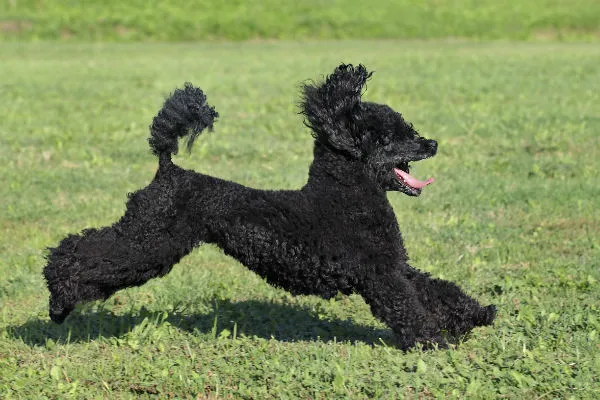 Poodle dog
Poodle dog
Poodles are perhaps the most well-known among small dogs that don’t shed and are hypoallergenic. Miniature and Toy Poodles offer these sought-after qualities in intelligent, petite packages. All Poodles are highly intelligent, which makes them exceptionally easy to train. They are an active and proud breed, and their curly coats require regular professional grooming to prevent matting and maintain their stylish appearance.
Scottish Terrier
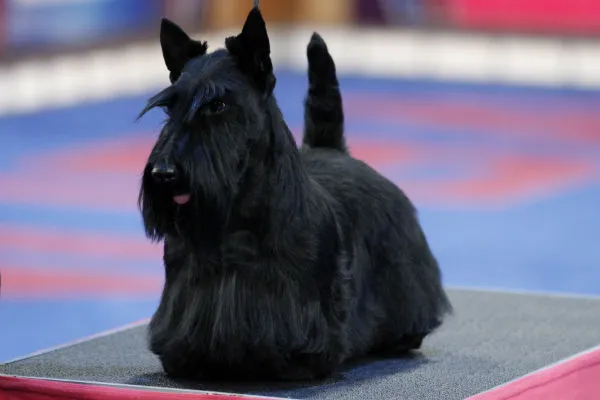 Scottish Terrier dog
Scottish Terrier dog
The Scottish Terrier, affectionately known as the Scottie, is a bold and confident breed with a big personality. Their wiry, weather-resistant coat sheds very little, although they do require regular brushing, grooming, and occasional hand-stripping to maintain coat health and breed outline. Scotties are clever and independent dogs with strong prey drives, so owners should exercise caution around smaller animals.
Shih Tzu
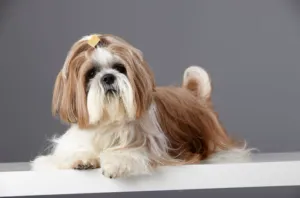 Shih Tzu dog
Shih Tzu dog
The Shih Tzu, a breed with a long and regal history, was favored by Chinese royalty. These “little lion dogs” come in a variety of colors and patterns. Their long, silky hair is very low-shedding and looks exceptionally majestic when brushed out, befitting their royal ancestry. This sturdy and lively Toy breed carries itself with a proud carriage, often described as arrogant, due to their high-held heads and curling tails. Bred primarily as house pets, their gentle and trusting nature makes them exceptional companions.
West Highland White Terrier
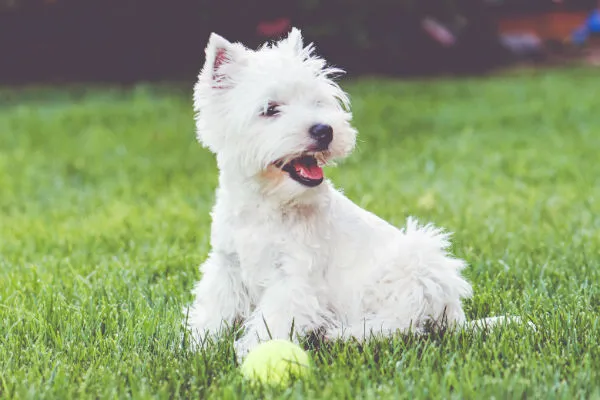 West Highland White Terrier dog
West Highland White Terrier dog
The coarse, white hair of the West Highland White Terrier, affectionately called Westies by fans, sheds very little. This sturdy little dog is intelligent, loyal, happy, and highly entertaining. They possess a curious nature and moderate energy levels, along with an independent streak common to Terriers, which can sometimes make training a challenge. Their cheerful disposition and playful antics make them beloved family members.
Xoloitzcuintli
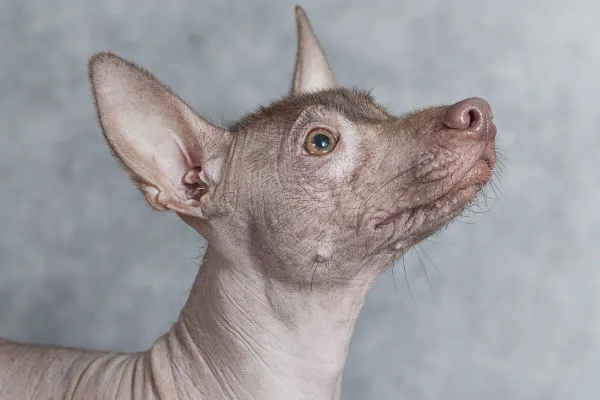 Xoloitzcuintli dog
Xoloitzcuintli dog
Also known as the Mexican Hairless dog, the Xoloitzcuintli is an ancient and rare breed that can be found in hairless or coated varieties. The hairless Xolo has minimal hair on its head, and the coated variety sports a very short, fine coat that sheds minimally. Like other hairless breeds, Xolos require a bit of extra attention for their skin, needing protection from the elements. They are attentive watchdogs and affectionate companions, known for their tranquil personality at home.
Yorkshire Terrier
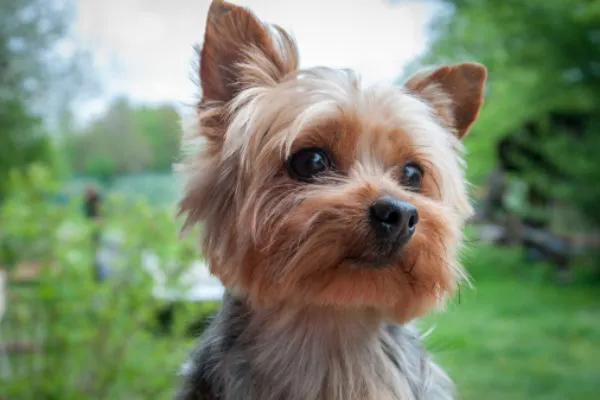 Yorkshire Terrier dog
Yorkshire Terrier dog
Sprightly, tomboyish, and affectionate, the Yorkshire Terrier, or Yorkie, is a Toy breed brimming with personality. These spunky lap dogs are incredibly popular for good reason. Yorkshire Terriers do not shed, and their silky coats are beautiful when brushed daily. Their small size makes this grooming process manageable. Don’t be fooled by their delicate appearance; Yorkies have working-class roots and were historically used to hunt rats. Today, they are just as content to curl up on their owner’s lap as they are to embark on an imaginary adventure.
Beyond Breed: General Care for Low-Shedding Dogs
While these breeds shed minimally, it’s crucial to remember that they still require dedicated care. Regular grooming, including brushing, bathing, and professional trims, is essential to keep their coats healthy, free of mats, and looking their best. Understanding the specific grooming needs of your chosen breed is paramount.
Furthermore, as with any dog, a high-quality diet, regular exercise, and consistent veterinary check-ups are vital for their overall health and well-being. For those considering adopting, exploring small dog breeds that stay small and don’t shed ensures you find a companion that fits your living space and lifestyle. If you’re looking for a furry friend that won’t leave a trail of hair around your home, focusing on small cute dog breeds that don’t shed is a great strategy.
Choosing a dog is a significant commitment. Taking the time to research breeds, understand their temperaments, and assess their care requirements will help ensure a harmonious and joyful relationship with your new canine companion.
Conclusion
Finding the perfect canine companion when shedding is a concern is entirely achievable. The breeds listed above represent just a fraction of the small dogs that offer the benefit of minimal hair loss. Whether you are drawn to the playful antics of a Bichon Frise, the regal presence of a Shih Tzu, or the alert nature of an Affenpinscher, there’s a low-shedding breed out there for you.
Remember that while these breeds are excellent for those with allergies or a preference for a cleaner home, they still require commitment to grooming, exercise, and overall care. By carefully considering your lifestyle, living situation, and the unique needs of each breed, you can confidently select a small dog that doesn’t shed and will bring years of love and companionship into your life. For more insights into finding the perfect match, explore our resources on small dogs that don’t shed and don’t need grooming and small dog breeds that don’t shed and are hypoallergenic.
